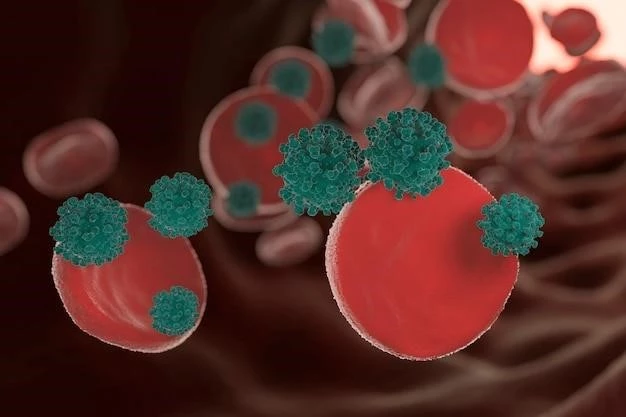Introduction
Hereditary xanthinuria (HX) is a rare autosomal recessive disorder caused by a deficiency of xanthine dehydrogenase/oxidase (XDH/XO). Explore the overview and implications of this condition.
Overview of Xanthine Oxidase Deficiency
Xanthine oxidase deficiency‚ also known as hereditary xanthinuria‚ is a rare autosomal recessive disorder caused by a deficiency of the xanthine dehydrogenase/oxidase enzyme. This metabolic condition results in abnormal purine degradation and accumulation of xanthine‚ which can have various implications on health‚ particularly affecting cardiovascular risks. Understanding the genetic basis and metabolic consequences of this deficiency is crucial for effective management and prevention strategies.
Clinical Presentation
Understand the symptoms and signs associated with hereditary xanthinuria‚ a rare disorder resulting from a deficiency in xanthine dehydrogenase/oxidase enzyme. Seek medical advice for appropriate management.
Symptoms and Signs
Patients with xanthine oxidase deficiency may present with various symptoms‚ including renal complications related to the accumulation of xanthine crystals in the kidneys. Seek medical attention if you experience symptoms such as abdominal pain‚ recurrent urinary tract infections‚ hematuria (blood in the urine)‚ or signs of renal impairment.
Genetics
Secure information about the autosomal recessive nature of xanthine oxidase deficiency due to mutations affecting xanthine dehydrogenase/oxidase enzyme. Learn more about how genetic factors influence this rare disorder.
Understand that the deficiency in xanthine oxidase is inherited in an autosomal recessive manner‚ meaning that an individual must inherit two copies of the mutated gene (one from each parent) to develop the condition. Genetic counseling may be beneficial to understand the risks and implications within families.

Diagnosis
Seek guidance on laboratory tests to detect xanthine oxidase deficiency accurately; Early diagnosis plays a crucial role in effective treatment. Consult healthcare professionals for appropriate evaluations and insights.
Autosomal Recessive Inheritance
Individuals with xanthine oxidase deficiency inherit the condition in an autosomal recessive pattern‚ necessitating two copies of the mutated gene to display the disorder. Proper understanding of this genetic trait aids in recognizing potential risks and genetic counseling for affected individuals and families.
Treatment
In consultation with healthcare providers‚ consider appropriate management strategies for individuals diagnosed with xanthine oxidase deficiency. Comply with recommended treatments for optimal outcomes and quality of life.
Laboratory Tests for Xanthine Oxidase Deficiency
Confirm the diagnosis of xanthine oxidase deficiency through specific laboratory tests focusing on xanthine and uric acid levels in blood and urine. Collaborate with healthcare providers to interpret test results accurately and tailor treatment plans accordingly.
Complications
Being aware of the cardiovascular risks associated with xanthine oxidase deficiency is crucial. Stay informed about the potential complications to manage your health effectively.
Cardiovascular Risks Associated with Xanthine Oxidase Deficiency
Explore the increased cardiovascular risks linked to xanthine oxidase deficiency‚ where the buildup of xanthine due to enzyme deficiency can contribute to a pro-inflammatory state‚ potentially raising the risk of cardiovascular diseases. Monitoring and managing these risks are essential to safeguard heart health.
Prevention
Adopt strategies to minimize cardiovascular risks associated with xanthine oxidase deficiency. Proactive measures can help mitigate potential complications. Consult healthcare professionals for personalized recommendations.
Strategies to Minimize Risks
To reduce cardiovascular risks associated with xanthine oxidase deficiency‚ consider lifestyle modifications such as a heart-healthy diet‚ regular exercise‚ smoking cessation‚ and monitoring blood pressure and cholesterol levels. Additionally‚ adhere to prescribed medications and attend follow-up appointments to manage cardiovascular health effectively. Consult healthcare providers for personalized risk reduction strategies.
Research and Future Directions
Stay informed about ongoing studies and future directions in understanding xanthine oxidase deficiency. Research advancements pave the way for improved treatments and outcomes. Stay tuned for updates on promising developments in this field.
Ongoing Studies on Xanthine Oxidase Deficiency
Explore the current research landscape surrounding xanthine oxidase deficiency. Scientists are conducting studies to further understand the genetic and metabolic aspects of this condition‚ aiming to develop improved diagnostic methods and targeted therapeutic approaches. Stay updated on the latest findings to enhance the management of xanthine oxidase deficiency.

Understanding the implications and management of xanthine oxidase deficiency is vital for individuals affected by this condition. Stay informed‚ seek appropriate care‚ and follow medical advice for optimal health outcomes.
Summary of Xanthine Oxidase Deficiency and Its Implications
Xanthine oxidase deficiency‚ characterized by a lack of xanthine dehydrogenase/oxidase enzyme‚ leads to abnormal purine metabolism‚ elevated xanthine levels‚ and potential cardiovascular risks. Early diagnosis‚ proper management‚ and ongoing research are crucial in addressing this rare genetic disorder effectively.
